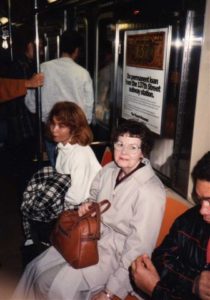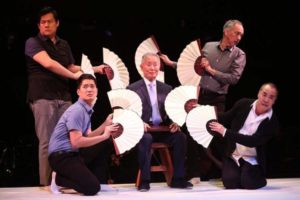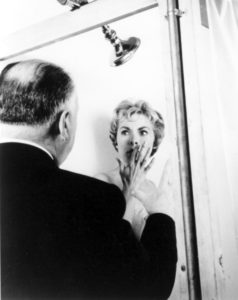 “By all means, golubchik, finish the play. You feel that it is not turning out as you should like, but don’t trust your feeling, as it may deceive you. One usually dislikes a play while writing it, but afterward it grows on one. Let others judge and make decisions.”
“By all means, golubchik, finish the play. You feel that it is not turning out as you should like, but don’t trust your feeling, as it may deceive you. One usually dislikes a play while writing it, but afterward it grows on one. Let others judge and make decisions.”
Anton Chekhov, letter to Maxim Gorky, September 24, 1900

 Evelyn Teachout, my beloved mother,
Evelyn Teachout, my beloved mother,  A few days after she died, I received and posted this e-mail from a New York friend who sent flowers to her funeral:
A few days after she died, I received and posted this e-mail from a New York friend who sent flowers to her funeral:
 Poetry is a process of subtraction, and Mr. Doyle’s genius—a word I use advisedly—lies in his ability to pare down a script to its essence. Doubling as director and designer, he has given us a “Pacific Overtures” that unfolds on a bare stage (the only set piece is a single wooden stool) which suggests a giant Japanese scroll, with the audience seated on both sides of the central playing area. The ten actors wear casual modern clothes, using scarves for visual accentuation, and move in a stylized manner redolent of the Noh theater on whose narrative devices Mr. Weidman drew in writing his book. The tone and scale of the production are enthrallingly intimate…
Poetry is a process of subtraction, and Mr. Doyle’s genius—a word I use advisedly—lies in his ability to pare down a script to its essence. Doubling as director and designer, he has given us a “Pacific Overtures” that unfolds on a bare stage (the only set piece is a single wooden stool) which suggests a giant Japanese scroll, with the audience seated on both sides of the central playing area. The ten actors wear casual modern clothes, using scarves for visual accentuation, and move in a stylized manner redolent of the Noh theater on whose narrative devices Mr. Weidman drew in writing his book. The tone and scale of the production are enthrallingly intimate… Not so Kenneth LaFave’s
Not so Kenneth LaFave’s